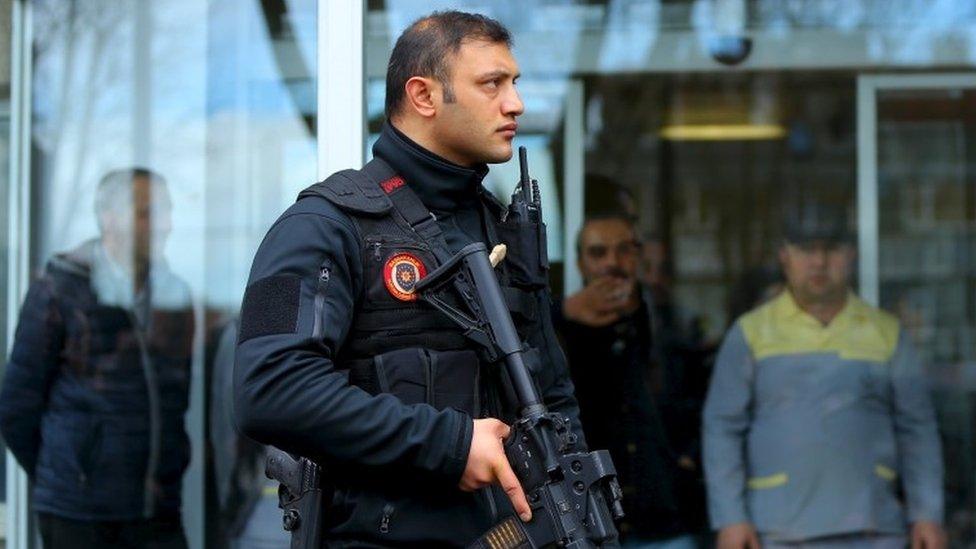Turkey academics on trial for 'terrorist propaganda'
- Published
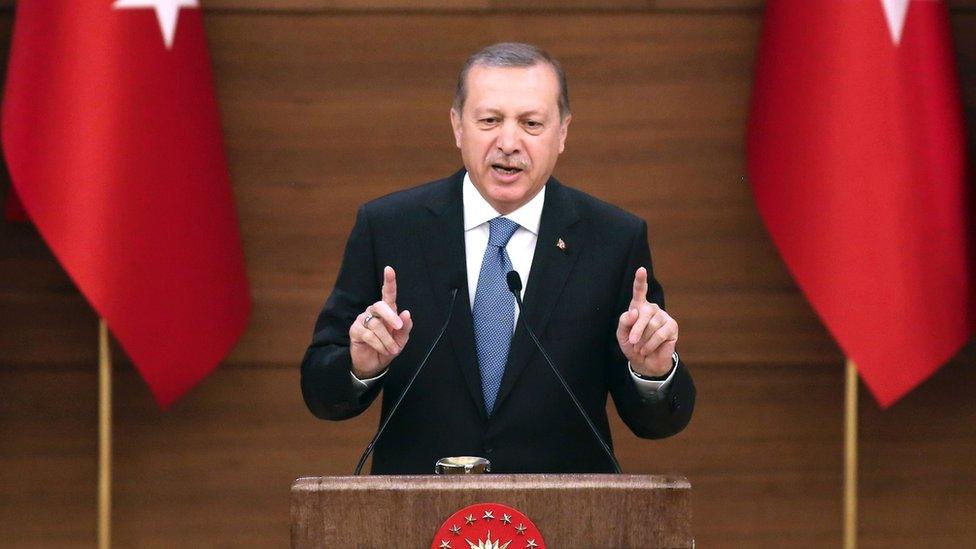
International observers have accused Turkey's President Recep Tayyip Erdogan of a crackdown on free speech
Four Turkish academics went on trial on Friday in Istanbul accused of spreading "terrorist propaganda".
The academics were among more than 1,000 scholars who signed a petition denouncing Turkey's renewed conflict with Kurdish rebels.
In the same court on Friday, the trial resumed of two prominent opposition journalists who face life in prison.
Turkey's President Recep Tayyip Erdogan has faced international criticism for alleged free speech restrictions.
Riot police guarded outside the central Istanbul courthouse while some 200 protesters held up placards reading "Freedom for the academics".
The petition signed by the academics urged Turkey's government to halt its "deliberate massacres and deportation of Kurdish and other peoples in the region".
Esra Mungan Gursoy, Meral Camci, Kivanc Ersoy and Muzaffer Kaya are accused of engaging in "terrorist propaganda" and "inciting hatred and enmity" for signing the petition, and for making a statement along the same lines in front of the media.
If convicted, the four face up to seven and a half years behind bars, according to Academics for Peace (BAK), the group behind the petition.
In a separate courtroom, two journalists - Can Dundar and Erdem Gul of the leading opposition daily Cumhuriyet - are on trial accused of revealing state secrets, after a report alleging the Turkish government had tried to ship arms to Islamists in Syria.
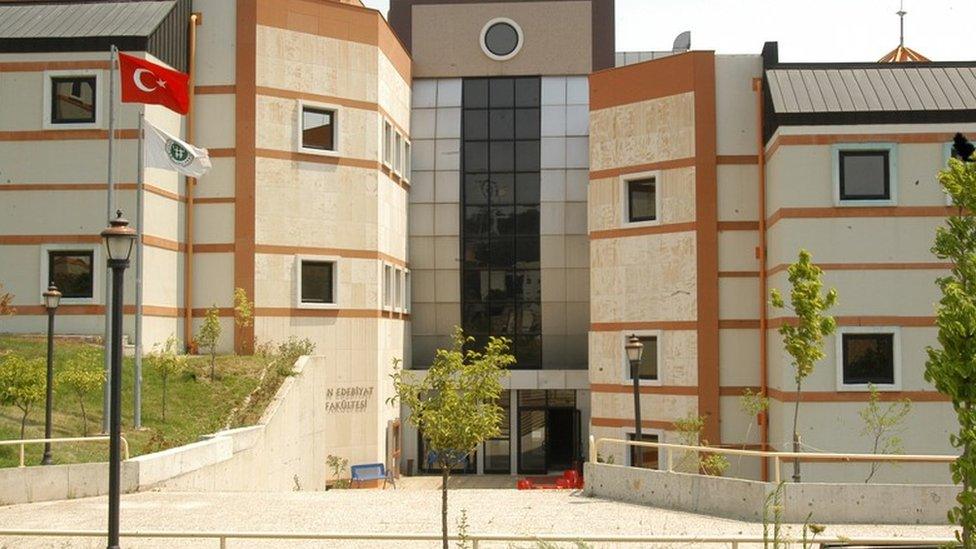
The Kocaeli University, where three of the academics worked
There have been repeated clashes between PKK separatists and the Turkish army in recent months, and the violence has recently escalated.
The government has imposed a series of curfews in the south-east while militants have erected barricades, dug trenches and used explosives to keep the authorities away.
The PKK formally took up arms against the Turkish state in 1984, seeking independence for Turkey's largest minority group.
A truce was reached in March 2013 but it collapsed last summer, since when the government has moved to eradicate the group in a relentless military campaign.
Last month, Mr Erdogan called for the definition of terrorism to be expanded to include journalists, activists and others who "exploit their positions, pens and titles and put them at terrorists' disposal."
He has also pushed for MPs from the pro-Kurdish HDP party to be stripped of their immunity so they can be prosecuted for "terrorist propaganda".
- Published15 January 2016

- Published15 April 2016
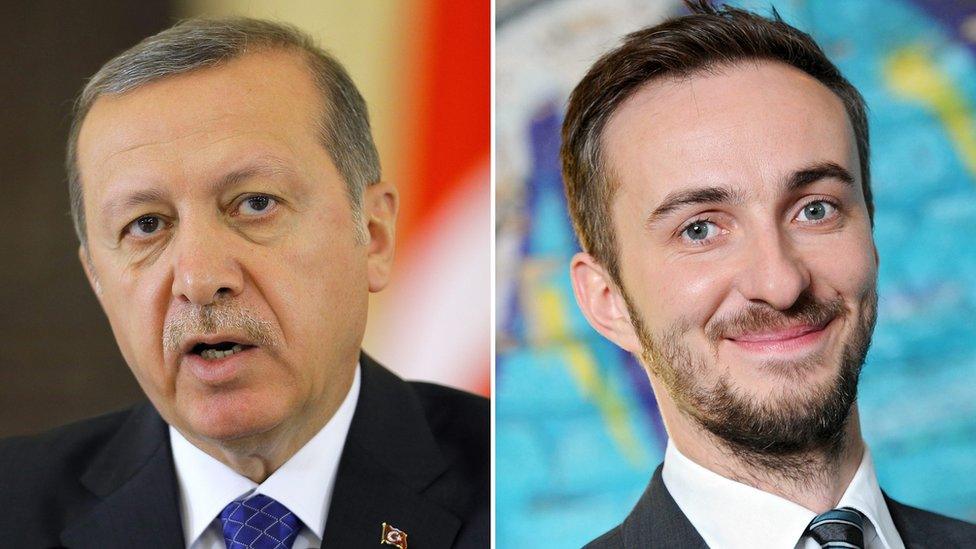
- Published11 April 2016
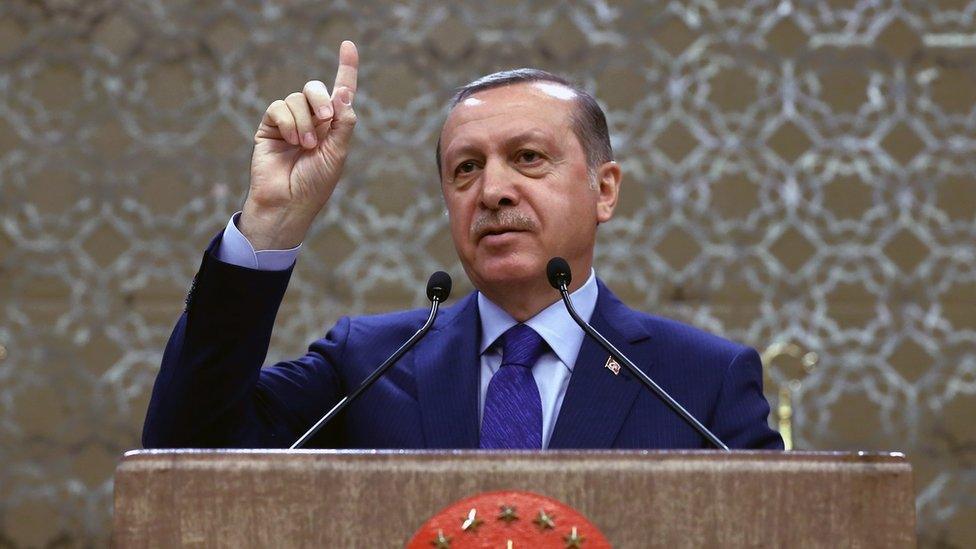
- Published14 January 2016
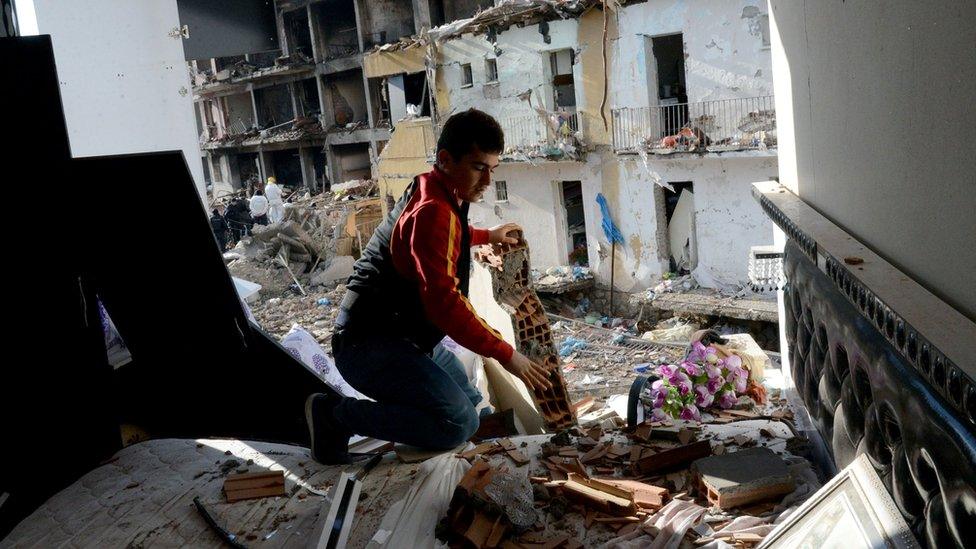
- Published13 January 2016
